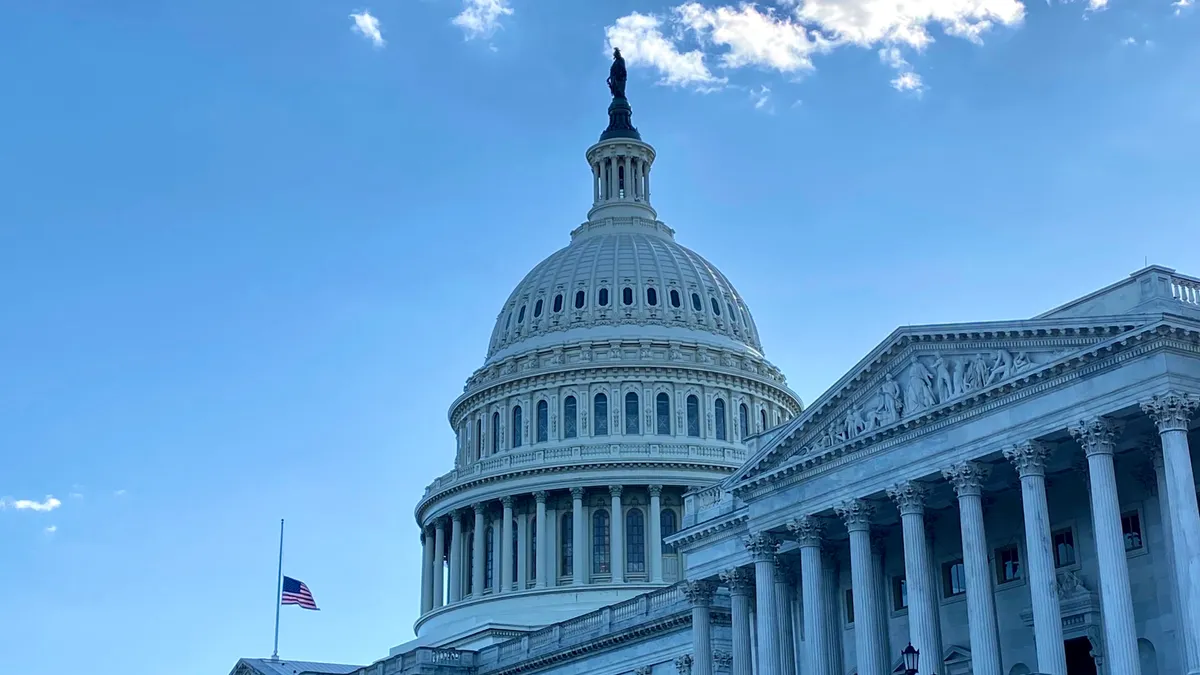UPDATE: Dec. 10, 2021: The Senate on Thursday passed legislation averting Medicare cuts that were set to go into effect in roughly three weeks. The vote was 59-34.
The bill, which passed the House earlier this week, delays 2% cuts to Medicare rates through March and a separate round of 4% cuts to 2023.
Provider groups including the American Hospital Association and American Medical Association cheered the bill's passage, with the AHA saying Congress removed the additional uncertainty the cuts would have created during the ongoing coronavirus pandemic.
The bill will now head to President Joe Biden's desk for his signature.
Dive Brief:
- The House of Representatives on Tuesday voted to avert billions of dollars in Medicare pay cuts scheduled to take effect at the end of the year, in a bipartisan effort spurred by intense lobbying from provider groups.
- The legislation would delay a 2% cut to Medicare rates through March, after which it would be reduced to 1% from April to the end of June. A separate 4% cut would be pushed to 2023.
- The bill is now headed to the Senate, which is likely to support the relief as both Democratic and Republican leaders have expressed confidence the measure will pass.
Dive Insight:
Congress failed to delay the cuts as part of a short-term funding bill passed last week, resulting in a flurry of condemnation from hospital and physician groups that argued the government wasn't protecting their funding even as the pandemic approaches its third year.
Groups like the American Hospital Association, the Surgical Care Coalition, the American Medical Association and the Federation of American Hospitals quickly issued statements supporting the legislation released by the House Rules Committee Tuesday that would mitigate some of the cuts set to take effect in less than four weeks.
AHA CEO Rick Pollack said he was "pleased that the House has recognized that now is not the time to make cuts to hospitals and physicians under the Medicare program." The AHA will continue to work with Congress to push off the new deadlines when they approach, he added.
Providers face two parallel cuts: a 4% pay-go cut, which is due to the American Rescue Plan passed in March, and the expiration of a current pause on the 2% Medicare sequester, stemming from the Budget Control Act of 2011.
If not delayed, hospitals in traditional Medicare claim they could lose an estimated $4.7 billion from the Medicare sequester and another $9.4 billion from the pay-go cuts in 2022 alone.
The new bill, called the "Supporting Health Care Providers During the COVID-19 Pandemic Act," would also increase provider reimbursements by 3% as planned in the Medicare physician fee schedule; delay cuts to the clinical laboratory fee schedule for one year and delay the implementation of the controversial Medicare radiation oncology model for one year.
"This legislation will bring some stability to the Medicare payment system to ensure patients can keep seeing their doctors," Rep. Kim Schrier, D-Wash. and a former pediatrician, who introduced the bill, said in a statement. "And doctors, who have been on the frontlines during this pandemic, can continue to keep their doors open."
While hospitals insist the legislative relief is critical to counter financial pressures from new coronavirus variants and rising staffing and workforce costs, COVID-19 has yet to significantly affect the bottom line of most major operators. Federal subsidies last year offset the worst of the pandemic's economic impacts, while systems like Tenet and HCA reported strong revenue and profit growth in the third quarter of the year, even as costs increased.













